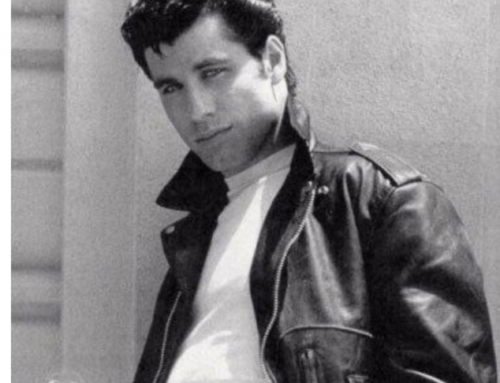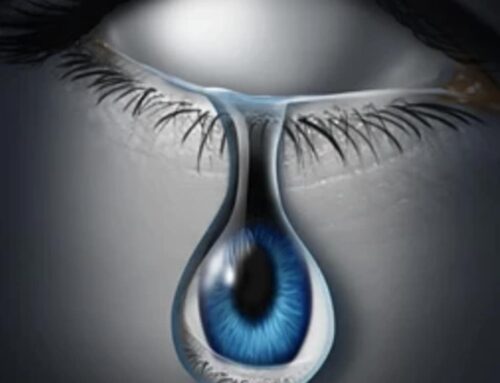After working with recovering alcoholics and drug addicts over 15 years, I have picked up on a few things along the way. Today I am going to discuss that which I believe is the #1 thing which has helped me more than anything to guide someone from despair to a productive, happy, sober life. Something I believe can help anyone who is reading this today to become more familiar with how their mind and emotions show up for them when they are under extreme stress.
There is no better teacher than our own experience. Our experience guides us, teaches us, and provides a barometer for which direction we should go next in our lives. Unfortunately, when our lives have gone to hell as a result of our choices while suffering from alcoholism and addiction, we doubt our own barometer. We no longer trust when our mind tells us to act on something because our past acts have had devastating results either for us or those close to us. We become uncertain about what the next appropriate step to take is. For an addict or alcoholic to rebuild their lives, the building requires a massive overhaul of our ideas, beliefs, and ability to trust ourselves. There is a reason it is said “getting sober is the easy part, staying sober is the difficult part.”
If staying sober is the difficult part, why is that? It would seem the drug and the alcohol have left the picture, therefore the recovering addict should be ten times better off? To some extent this is true. There is something to be said for no longer having to wrestle with the remorse and guilt of the next morning after making a fool of oneself the night before, and we stop the bleeding of hurt upon those we love in our lives. The constant beating finally comes to a halt. However, we are then left with the most difficult challenge we face…….our mind.
Eckert Tolle and Wayne Dyer both have excellent perceptions on what they describe as the “ego” part of our identity. To paraphrase, the ego is a separate thing from who we are. Meaning our thoughts are only thoughts and our true “being” is something internal which requires no thought, our spirit per say. Try dropping that on a person new to sobriety! Not only would it be extremely overwhelming for them, if they have an aversion to spirituality they may never speak to you again! So, what can be done to help reach someone, to help give them guidance during their difficult struggles with the mind in sobriety. This isn’t just for a newcomer, this applies for anyone, anywhere – I purposely focus mine on recovered alcoholics and addicts because that is where my specialty lies.
To begin to explain where I am going with this – I am going to ask a few questions of you: 1. What do you do when you are frustrated with yourself about something you’ve done or said? How do you react? 2. What do you do when you are frustrated with someone else who seems to have hurt you? How does your physical body feel? 3. When you have been in the darkest phase of your using, were you suicidal or homicidal? All of these questions relate to the #1 technique I apply when working with someone in recovery – I determine if they are a “doormat” or a “bulldozer”. Let me explain.
Of course, everything I am about to explain is derived from my own past, my own experiences. I had my own moment of clarity with the above two terms when I was diligently working on myself to learn how to show up in a loving, intimate relationship. Something those of us in recovery sometimes find difficult.
As I poured out my heart to my then sponsor/mentor she was silent, which I appreciated, then she spoke. She said “you are a bulldozer”. I, of course, followed up with “what does that mean?”. She began to explain in her experience she has come across two personalities type – the bulldozer and the doormat. I had another friend brilliantly define it as “homicidal vs. suicidal”.
The bulldozer or the homicidal one when under extreme stress takes it out on the other party. They are angry and indignant, and they will tell you all about it. This would be an extreme case of justified resentment – they feel they are not to blame because someone else caused them harm, which in turn is the reason they now have a license to more less scream at them, berate them, or a phrase I use to use “hand them their ass!”. The bulldozer takes prisoners and never looks back – it’s all justified. Ultimately, down deep they are nothing more than a victim. They have convinced themselves they are not responsible because they only reacted to someone else’s action, they had to defend themselves. For me, this was a convenient reaction to dealing with my upbringing – my mom was an alcoholic, and a messy, emotional screaming one. Emotionally abusive. My father made it his mission to raise my sister and I to “stand on our two feet”, “don’t take shit from no one” – sooooo, mom dished out the shit, and my sister and I verbally fought back, fully justified. There is also a part of me that believes I was born a bulldozer – my initial reaction to a stressful situation (although not so much anymore) can be immediate anger. I can feel it in my bones, my heartrate elevates, if the person or the situation I am opposed to are not present this might manifest in imaginary debates, and conversation where they are not present, but I am winning! This was always my go to position in dealing with difficulties, that is until I began to work on me, and emotionally grow.
You might have figured this out already, the doormat is the exact opposite. I remember when my mentor was explaining the two distinct types I began to immediately find solution to helping some of the women I was sponsoring and mentoring. This perspective provided a solution to some of my obstacles in really helping someone. She explained the doormat personality is one who internalizes all the “stuff.” For example, if someone does them wrong, they don’t get mad at the person, they think it is all their fault, they begin to replay the situation and take 150% accountability for the problem. This type of person suffers from extreme low self-esteem, and their mind has almost convinced them they are powerful enough to create all this misery in everyone’s life, therefore they are nothing, they are horrible people. Therefore, a doormat personality would be suicidal. They don’t see past themselves to the point self-induced misery. It’s a delicate situation pulling a doormat up out of their own self-misery because they are already beating themselves up to an extreme. In order to help them find their part in the situation so they can gain some clarity I must be cognizant of their internal dialogue, because it is so damaging – if I am too blunt too quick they will shut down and internalize again.
Now that I have covered the two personality types, I must clarify we all have some of both in us. I for a long time was a doormat in my marriage – I took 150% accountability for the demise of it, always looking to fix me, afraid to raise any issue with him and ended up being miserable until I found my voice, and confidence. I did the same thing at work. I began to shut down and give all the power to the upper management, refusing to communicate – a kind of attitude of “it wouldn’t matter anyway” – (that is a quote by the way by “Eeyore” the depressed, sullen donkey from the Winnie the Pooh Characters).
Hopefully, providing some perspective into some basic personality types you might encounter when helping others, but most importantly discovering how you operate emotionally when under extreme stress can help with growth in your life and in the lives of those you are of service to, or one day will be.
Our sobriety and emotional growth is a journey. The self-discovery phase can be extremely uncomfortable, however once I realized how I reacted to things it allowed me to catch the signs of my emotions and then pick up the phone and call my sponsor/mentor for guidance. This aided in my ability to not take it out on others or myself to the point of misery.
Bulldozer or Doormat? Which one primarily runs your stressful moments? Please feel free to email me any questions you may have or comments @ [email protected]. You can also catch up with my daily motivational quotes and thoughts on Instagram @ susan_denee.
Have a great day, and enjoy the journey!



